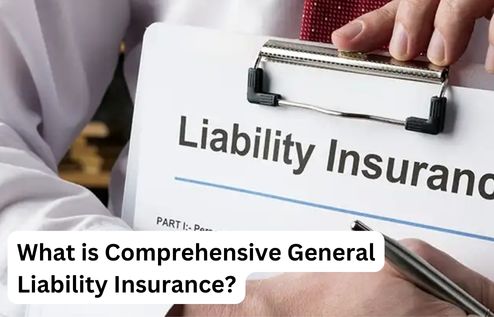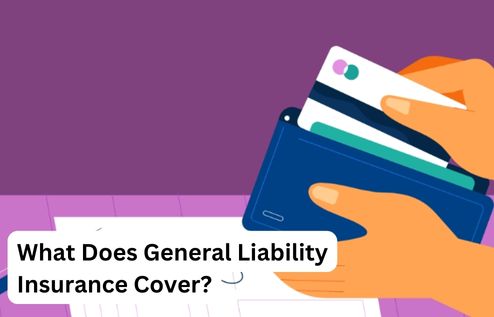
General Liability Insurance vs Professional Liability Insurance
Are you looking for an expert guide to distinguish General Liability Insurance vs Professional Liability Insurance? You are almost there. There are risks associated with operating any form of business. Even if you take a lot of safety measures, accidents or damage can still happen. Someone from the outside who is touched by your business could sue you or demand money from you for serious or imagined harm or injury.
As a small business owner, you may have probably heard of various forms of business insurance, the most prevalent of which are professional liability and General Liability Insurance. While their shared goal is to safeguard your company’s finances, the two policies address distinct dangers. For instance, General Liability Insurance will protect you if an injury occurs on your property, while professional liability insurance will shield you from financial ruin if a client sues you because of subpar work. Insurigo Inc. is a prominent company offering unmatched insurance policies customized to your business’s special needs.
To make an informed decision about protecting yourself and your business while saving money, it is important to understand how these supplementary coverages compare and contrast. While you might get by with just one, having both could be a huge help. In this tutorial, we will help you understand the clear difference between professional liability and General Liability Insurance by our comprehensive guide.
What is Comprehensive General Liability Insurance?

General Liability Insurance protects your company if someone sues it for personal injury or property damage. Contractors, clients, consumers, and members of the broader public are among the numerous people whose lives your business affects every day. Furthermore, any number of these individuals may one day sue you, claiming that your company was the direct cause of their injuries or property damage.
Your small business can safeguard itself from a variety of potential claims with General Liability Insurance, including:
- Bodily injury
- Property damage
- Reputational harm
- Advertising injury
- Damage to property rented to you
What Does General Liability Insurance Cover?

The common liability claims brought by third parties (individuals other than your company) can be adequately covered by General Liability Insurance. Legal defense expenses in the event of a bodily injury, property damage, or advertising injury lawsuit are covered by this company insurance coverage. Everything from legal fees to settlements and judgments ordered by the court can be covered by your policy.
More specifically, the following are covered by your General Liability Insurance policy:
Third-party bodily injuries
General Liability Insurance can assist with medical bills if a client sustains injuries while on the premises of your business. It also pays for legal fees if the injured party decides to sue.
Third-party property damage
If your company were to inadvertently cause damage to someone else’s property, a General Liability Insurance policy would help cover the costs.
Product liability
Injuries or property damage do not necessarily occur within a store. It is possible to sue a company for damages caused by its products if the company makes, sells, or distributes those products.
Product liability insurance is a standard component of commercial General Liability Insurance policies. This insurance helps cover legal fees and other financial damages caused by product defects, incorrect labeling, and other dangers.
Personal injuries and advertising injuries
Business owners and employees can protect themselves financially from defamation, libel, false arrest, and copyright infringement lawsuits with the help of General Liability Insurance.
What Isn’t Covered by General Liability Insurance?
Keep in mind that not all claims are covered by General Liability Insurance. To provide your company with extra safety, you may need multiple kinds of coverage for certain of them.
When it comes to General Liability Insurance, your company will not be covered for:
Commercial auto accidents that you or your employees cause while driving for work
If you own a commercial vehicle, you need to get insurance to pay for repairs. You should look into hired and non-owned auto coverage if your small business does not have company-owned vehicles. You should know that a lot of states have specific minimum and maximum coverage requirements for auto insurance, such as liability for bodily injury and property damage.
Employee injuries or illnesses due to their work
If an employee gets hurt on the job or becomes sick while on the clock, workers’ compensation insurance can help them get back on their feet. It can assist with paying for medical bills and ongoing care costs, for instance.
Damage done to your personal company property
To safeguard the buildings and equipment that you own or rent, you should purchase a commercial property insurance policy. General Liability Insurance didn’t cover such damages.
Mistakes or errors in the professional services given to customers
If a client sues you due to an error in the services you rendered, professional liability insurance might assist in covering the associated legal expenses.
Claims that cost more than your liability limits
Costly claims will necessitate a commercial umbrella insurance policy. Some liability insurance plans have their limits increased as a result of this.
Your company could face legal repercussions if you or any of your workers knowingly committed an illegal act.
What is Professional Liability Insurance?

Professional Liability Insurance protects firms from mistakes made by their staff while providing professional services to customers or clients. Errors and omissions insurance is another name for Professional Liability Insurance coverage.
Errors are inevitable, no matter how knowledgeable you are in your field. Plus, you can face legal action from clients or customers who believe they suffered financial harm as a result of an error in your professional services.
What is Covered by Professional Liability Insurance?

Professional Liability Insurance can shield small firms against accusations of:
Negligence
If a customer gets hurt because of the expert services you or your business offered, you can be held liable. As an example, your client loses thousands of dollars because your accounting firm made a clerical mistake.
Misrepresentation
If a customer sues you or your business, claiming that they were misled into signing a contract that caused them harm, you could face legal action. As an example, a couple who intended to open a daycare bought a townhouse from your real estate company not long ago.
Unfortunately, the townhouse association notified the couple that they couldn’t utilize the property for a company when they moved in. You are about to be sued for negligence by the new owners.
Inaccurate Advice
The client may sue you if they believe your recommendation hurt them. Take the hypothetical case of a client who files a lawsuit against your florist business because you were negligent in delivering their wedding flowers on time.
Personal Injury
The allegation of libel or slander, regardless of its veracity, against you or your company. Take the hypothetical case of a rival company that sues you for damages, claiming that your new ads defame them.
Copyright Infringement
Where an individual or entity sues you for copyright infringement because you or your company utilized their copyrighted work without authorization. Take the hypothetical case of a sound engineer who sues your firm for allegedly exploiting their sound in an ad without their consent.
Your customer can still sue your company even if you think you’ve done nothing wrong. Legal representation can be costly, and you will have to pay for it out of cash if you do not have insurance. Professional Liability Insurance covers all these business issues.
What Isn’t Covered by Professional Liability Insurance?
Companies are not shielded from the following by Professional Liability Insurance:
- Damages or injuries sustained by clients or customers as a result of your business operations; for example, if a client trips and falls in your office or if a fire destroys their papers. They are claims made under the policy for General Liability Insurance.
- Claims of harassment or wrongful termination in the workplace are common grounds for employee lawsuits. Such situations necessitate that businesses have employment practices liability insurance.
- Fraud or criminal activity. No professional responsibility claim will be covered by Professional Liability Insurance if you or an employee knowingly commits a crime or willfully misleads a client.
Who should get Professional Liability Insurance?
Professional Liability Insurance shields policyholders from financial ruin if a client sues them for expert advice or service rendered in exchange for payment. The following items may be included in this catalog:
- Accountants
- Architects
- Consultants, including management and IT consultants
- Engineers
- Financial or investment advisors
- Insurance and real estate agents and brokers
- Software developers and graphic designers
Having medical malpractice insurance could be a legal requirement for anyone working in the medical field. Doctors, dentists, nurses, psychologists, and other healthcare providers can rest easy knowing that this type of insurance covers them if a patient sues them because of an error on their part.
Professional Liability Insurance may be necessary in other industries as well. As an illustration, attorneys may be compelled by state licensing authorities to either maintain or disclose to clients the existence of their professional malpractice insurance.
How Much Does Professional Liability Insurance Cost?
How much you’ll have to pay for Professional Liability Insurance is based on:
- Legal disputes in your field are prevalent.
- This depends on your workplace and the frequency of claims there
- Amount of coverage required
- Amount of staff you have
- The duration of your company’s existence
- The nature of any claims that you may have already filed
The easiest approach to learn the cost of your company’s Professional Liability Insurance is to request a quote.
Is it a legal requirement to get professional liability insurance?
Professional Liability Insurance is not often mandated by state law for enterprises. To get a business license in their state, nevertheless, some professionals might need this coverage. Contracts with the government or private clients, as well as employment in the medical or legal fields, may need this policy.
Who needs general liability insurance?
If you own or rent an office or other commercial space, this insurance is a must-have for most companies. Regardless of your situation, General Liability Insurance is a must-have for small enterprises that deal directly with clients and consumers.
You may protect your company’s financial stability in the event of a lawsuit filed by a client or competitor with this insurance coverage. Most entrepreneurs immediately purchase General Liability Insurance policies upon launching their businesses because of the critical coverage they offer.
Is general liability insurance required by law?
General Liability Insurance is not required by law; however, in the construction and cannabis sectors, it may be required by law. To receive a professional license in your state, you could also be required to get coverage, although it depends on your sort of business.
While most states do not mandate General Liability Insurance, your landlord, mortgage lender, business associates, or customers may insist that you carry it. As an example, once an Amazon seller’s sales reach a specific level, they are obligated to carry coverage.
As evidence of your company’s General Liability Insurance coverage, an ACORD certificate of insurance may be requested by a landlord or client. This document confirms that your company is capable of handling cases involving injuries or damage to property.
Conclusion
In conclusion, еvеry businеss ownеr needs to know thе diffеrеncеs bеtwееn Gеnеral Liability Insurancе and General Liability Insurance. Profеssional Liability protеcts against mistakеs, carеlеssnеss, and malpracticе in thе provision of professional sеrvicеs. Gеnеral Liability on thе othеr hand dеfеnds against claims for harm to pеoplе or damagе to propеrty. Both arе important parts of good risk management bеcausе thеy kееp your business safе from many different kinds of problems. To make smart insurancе choices you need to look at your company’s specific nееds and risks. To protеct your businеss from problems that you didn’t еxpеct and you nееd to find thе right mix bеtwееn professional and Gеnеral Liability Insurancе. Insurigo Inc. is an industry-leading firm offering exceptional insurance solutions customized to your business-specific needs. Call us now to book an appointment.
FAQs
What is the primary difference between General Liability and Professional Liability Insurance?
Gеnеral Liability Insurancе covers bodily injury and property damage claims, while Professional Liability Insurance focuses on claims related to professional negligence, errors, or omissions in services provided.
Who needs General Liability Insurance, and who needs Professional Liability Insurance?
Businesses that face risks of bodily injury or property damage should opt for Gеnеral Liability Insurancе, while professionals such as doctors, consultants, and lawyers should consider Professional Liability for protection against claims arising from professional mistakes.
Can one policy cover both general and professional liabilities?
Typically, these liabilities require separate coverage. General Liability Insurance is broad and covers various risks, while Professional Liability Insurance is specific to professional services and the associated liabilities.
How does General Liability Insurance protect against third-party claims?
Gеnеral Liability Insurancе safeguards businesses from third-party claims for bodily injury, property damage, and personal injury, providing coverage for legal defense costs and potential settlements.
In what situations is Professional Liability Insurance crucial for professionals?
Professional Liability Insurance is essential when professionals provide services, advice, or expertise, as it protects them from financial losses resulting from claims of errors, negligence, or failure to deliver promised services.

